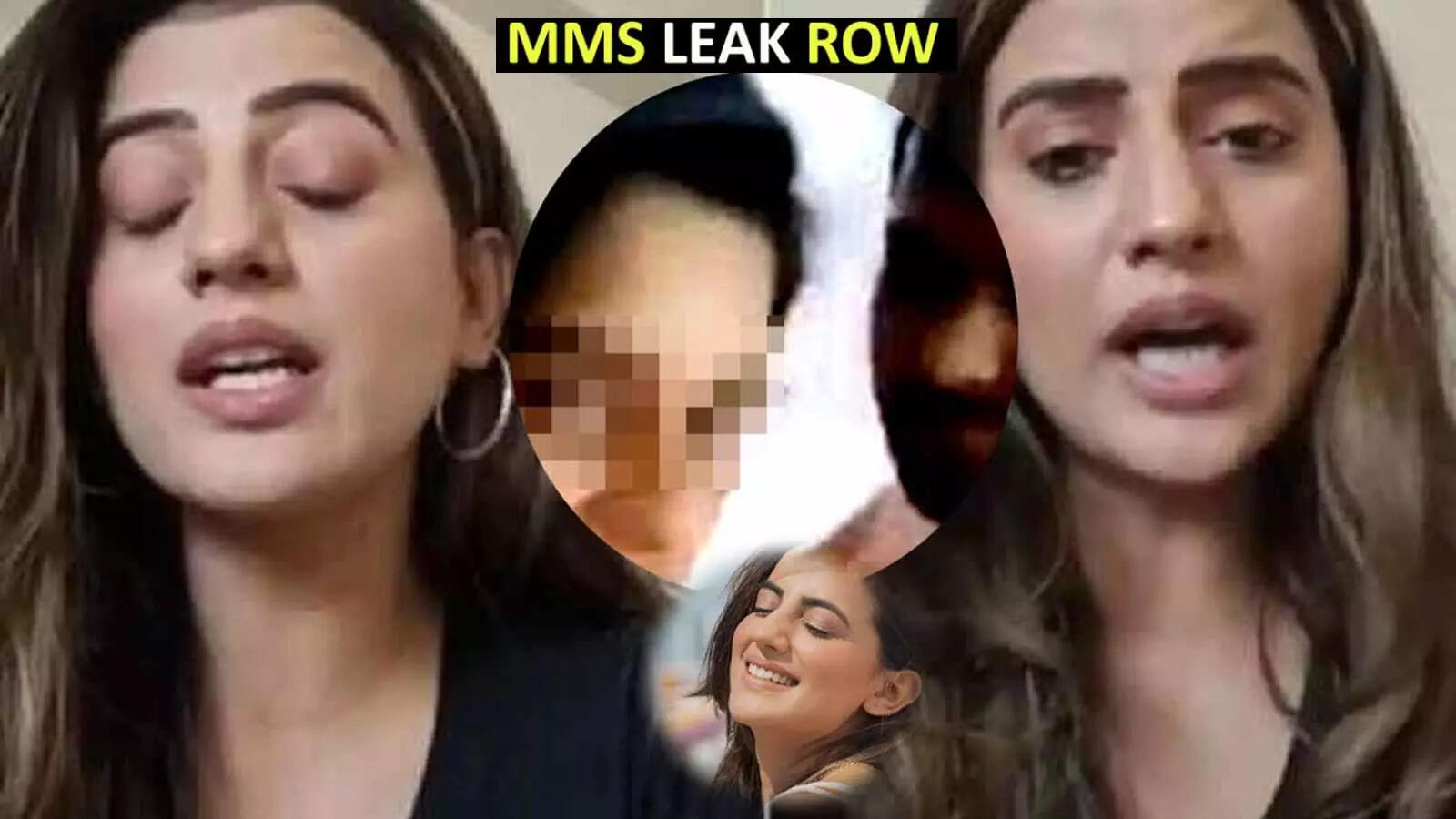MMS Leaks: Latest Scandals & Celeb Fallout - Uncensored!
In an age dominated by digital footprints, how vulnerable is our personal privacy? The prevalence of leaked private content, ranging from intimate videos to compromising images, paints a stark picture of a society grappling with the erosion of personal boundaries in the digital realm.
The landscape of online privacy has become increasingly precarious. The proliferation of smartphones, social media platforms, and readily available sharing tools has made it easier than ever for personal moments to be captured, shared, and disseminated without consent. This vulnerability extends across various demographics, from celebrities and public figures to everyday individuals, highlighting the pervasive nature of this issue.
The leak of a personal video featuring Kareena Kapoor and Shahid Kapoor, captured during their dating period, served as an early example of how easily private moments can be thrust into the public eye. While the video's content was not explicitly graphic, its unauthorized release caused a significant media frenzy, underscoring the public's appetite for such content and the potential for damage caused by such breaches of privacy.
The following table provides a brief overview of Kareena Kapoor's career and personal life:
| Category | Details |
|---|---|
| Full Name | Kareena Kapoor Khan |
| Date of Birth | September 21, 1980 |
| Place of Birth | Mumbai, Maharashtra, India |
| Nationality | Indian |
| Occupation | Actress |
| Years Active | 2000present |
| Notable Works | 'Kabhi Khushi Kabhie Gham...', 'Jab We Met', '3 Idiots' |
| Spouse | Saif Ali Khan |
| Children | 2 |
| Awards | 6 Filmfare Awards |
| Reference Website | Wikipedia - Kareena Kapoor |
The digital age has witnessed a surge in the occurrence of non-consensual intimate content dissemination, with celebrities often finding themselves at the center of such controversies. Social media star Anjali Arora, known for her presence on various platforms, has unfortunately been a victim of morphed videos and images. The sharing of these materials without her consent in August 2022 led to severe backlash, legal actions and caused a lot of emotional distress.
The repercussions of such privacy violations are multifaceted. The psychological impact on victims can be profound, leading to feelings of shame, embarrassment, and anxiety. Social stigma and the fear of judgment can isolate individuals, making it difficult for them to seek help or justice. Furthermore, such leaks can have a devastating effect on relationships, careers, and overall well-being.
The case of the Chandigarh University, located in Mohali, Punjab, serves as a poignant illustration of how the misuse of technology can lead to widespread outrage and protest. In a distressing incident, a female student was accused of secretly filming other women in a hostel bathroom, leading to a week-long closure of the university. The allegations, which included the leaking of these videos, sparked massive demonstrations and raised serious concerns about the safety and privacy of students on campus. Though the university authorities dismissed the allegations of misbehavior against a warden as "false and baseless", the incident has ignited public debate about the responsibility of educational institutions in safeguarding their students and the need for robust measures to prevent such violations.
The leak also highlights the issue of consent and its violation in the digital age. The unauthorized recording and dissemination of intimate content without the explicit consent of the individuals involved is a criminal act that can have severe consequences. However, the fact that such instances continue to occur underscores the need for heightened awareness and stricter enforcement of laws to protect individual privacy. The Punjab police confirmed the recovery of multiple clips of the female student involved in the Chandigarh University case, emphasizing the seriousness of the situation.
The case of Pakistani Tiktoker Sajal Malik, who bravely addressed a leaked MMS scandal, demonstrates the psychological toll that such invasions of privacy can take. Malik, while dismissing the video as fake, shared the emotional burden she endured, highlighting the impact of online harassment and the urgent need for empathy and support for victims of such attacks. The online trolls and hate speech that accompany such incidents can create a toxic environment where victims feel isolated and powerless, but Maliks decision to openly discuss her experience encourages a conversation about the impact of such leaks on mental health.
Hansika Motwani, another actress who found herself caught in the crosshairs of an MMS leak, showed how quickly rumors and misinformation can spread online. Motwani, however, promptly clarified that the video in question was a fake. This incident underscores the importance of critical thinking and the dangers of believing unverified information, especially when it comes to sensitive issues such as private video leaks. Even with the best intentions, the speed at which these rumors and images can spread online can have serious consequences, particularly for the individuals involved.
Minahil Malik, another Pakistani TikTok star, faced similar challenges when an alleged MMS leak controversy impacted her. In response, Malik denied the allegations and filed a complaint, underscoring the importance of legal recourse and the need to hold those responsible for the leaks accountable. The incident reminds us of the effect of fame on personal privacy and how public figures are often subjected to intense scrutiny and vulnerability in the digital age.
The case involving the "Kulhad Pizza couple" highlights the vulnerability of even relatively unknown individuals to the repercussions of leaked intimate content. Their case sparked debates across all social media platforms regarding the act of sharing and viewing the material.
The entertainment industry is not exempt from such breaches. From Bollywood stars like Katrina Kaif, Soha Ali Khan, and Kareena Kapoor Khan, to actresses like Anjali Arora and Rida Isfahani, numerous celebrities have had their private moments leaked online. This pervasive issue emphasizes how any individual, regardless of their fame or influence, may be subject to the dangers of digital privacy invasion. The fact that such leaks continue to occur at an alarming rate highlights a systemic issue within society, requiring a multifaceted approach to address it.
Trisha Kar Madhu, a Bhojpuri actress, also faced a similar situation. She was compelled to urge netizens not to watch the leaked MMS and delete the video, but the incident stirred a blame game, underscoring the complex emotional and social dynamics that come into play.
The challenges and difficulties faced by these victims highlight the urgent need for a comprehensive approach to protect digital privacy. This approach includes legal frameworks, technological solutions, and a fundamental shift in social attitudes.
The pervasive nature of leaked MMS content emphasizes the need for stronger legal frameworks to protect the privacy of individuals. This includes strengthening existing laws, implementing stricter penalties for those who create, share, or view such content without consent, and ensuring that law enforcement agencies have the resources and training necessary to investigate and prosecute such cases effectively. Furthermore, international cooperation is essential, given the cross-border nature of the Internet, to ensure that offenders are held accountable regardless of their location.
Technological advancements play a critical role in preventing and addressing the issue of leaked MMS content. Developing and implementing robust security measures to safeguard private information on devices and platforms is essential. Furthermore, there is a need for advanced tools to identify and remove leaked content quickly, as well as to track down those responsible for sharing it.
However, technological solutions alone are insufficient. A fundamental shift in social attitudes is required to address the root causes of this issue. This involves promoting media literacy, educating individuals about the importance of consent and the consequences of sharing non-consensual intimate content, and fostering a culture of respect and empathy. This change can be achieved through educational programs, public awareness campaigns, and constructive dialogue to promote responsible behavior.
The recent emergence of a leaked video featuring Mtv Splitsvilla X5 stars, Deekila Sherpa and Aniket Lama, highlights the persistent nature of these privacy violations. The dissemination of such content has a devastating effect on individuals, impacting their reputations, relationships, and social interactions. In addition to these immediate impacts, victims frequently face social isolation and judgment, making them reluctant to seek assistance or justice. The case of Anjali Arora underscores the necessity of providing support and legal recourse to victims of such violations, allowing them to regain control over their narratives and regain their dignity.
The initial incident of an MMS leak involving Pakistani Tiktoker Minahil Malik highlights a disturbing trend of non-consensual content sharing. The rapid spread of such material, combined with online harassment, underscores the need for a multifaceted strategy to protect individuals from such assaults.
The situation surrounding Trisha Kar Madhu and her case highlights a prevalent problem: the victim is frequently unfairly blamed for the actions of others. Instead of condemning the act of disseminating private material, certain people turn to shaming and blaming the victim. This reaction promotes a culture of fear and silence, preventing other victims from coming forward to seek assistance and justice.
The issue of private video leaks is a complex and multifaceted challenge that requires a comprehensive approach. This must include stronger legal frameworks, the advancement of technology, and a fundamental shift in social attitudes. Only by addressing all these factors can we work towards a safer and more respectful digital environment where individual privacy is protected and victims are supported.


